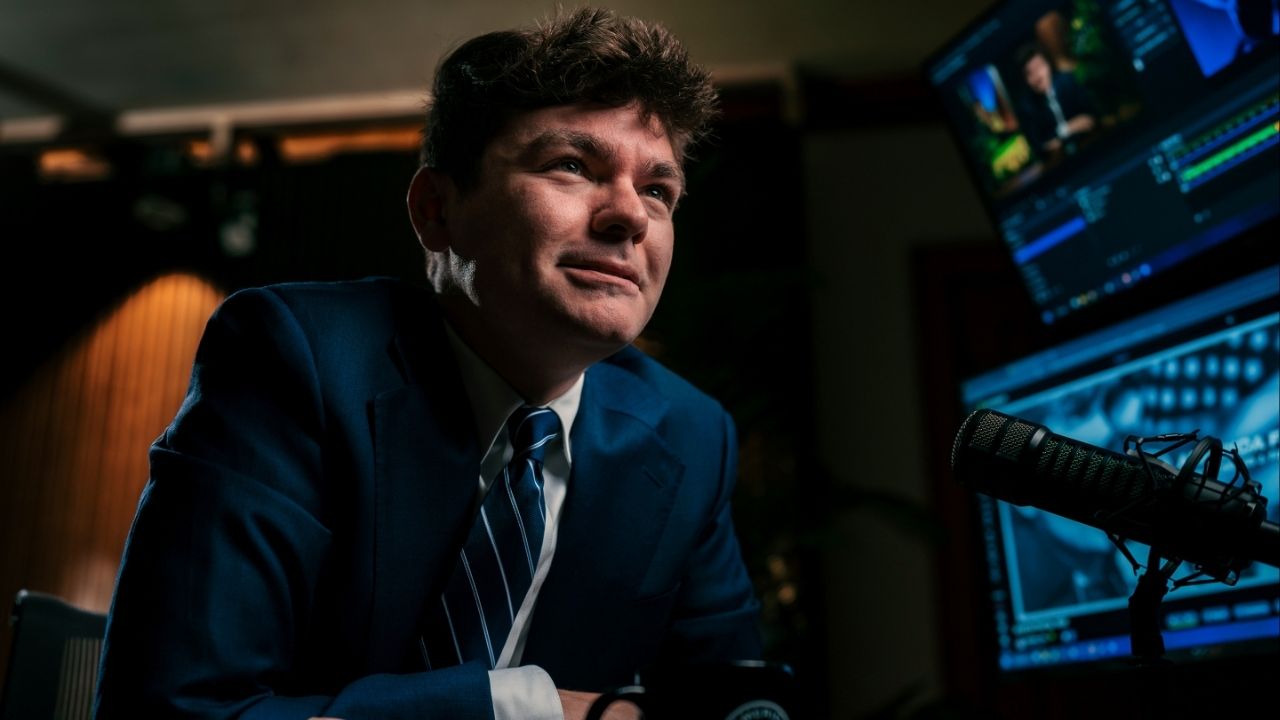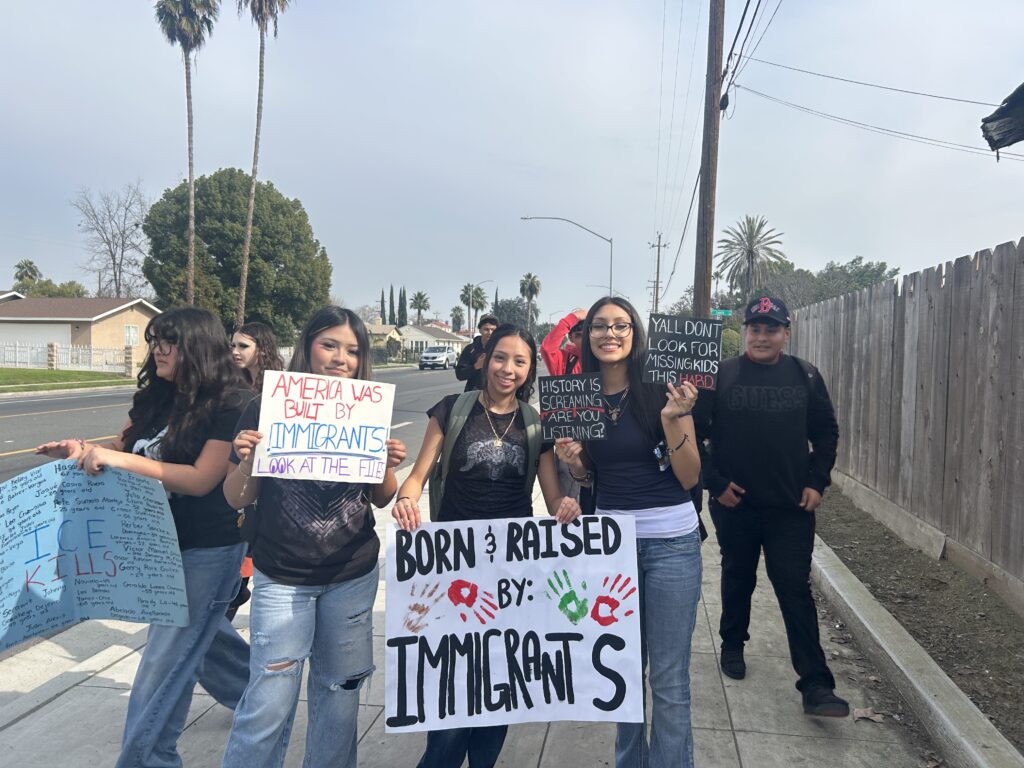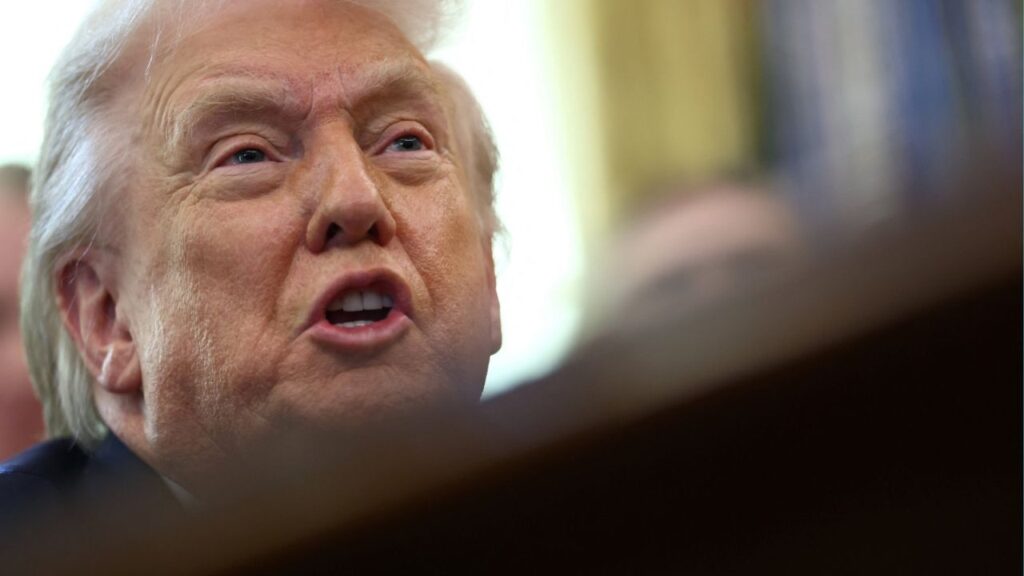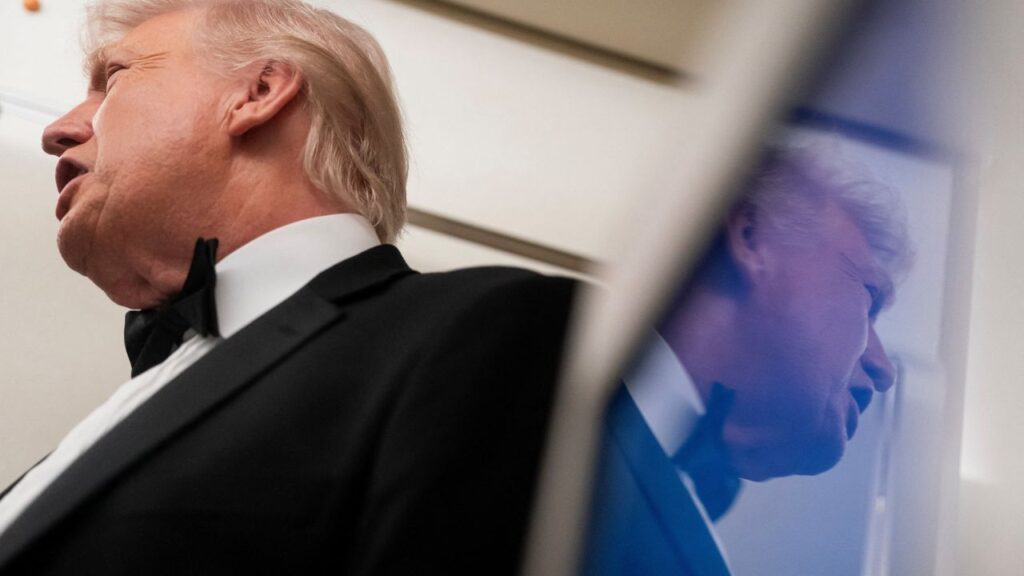Nicholas Fuentes, the notorious white nationalist social media personality, in his streaming studio in Berwyn, Ill., Sept. 8, 2025. Tucker Carlson, the conservative commentator, has further fractured the right with his anti-Israel rhetoric and sympathy for a white nationalist. (Jamie Kelter Davis/The New York Times)

- Tucker Carlson’s interview with Nick Fuentes deepened conservative fractures and fueled backlash over his remarks dismissing Israel’s strategic importance.
- Carlson’s refusal to challenge Fuentes’ antisemitism sparked fierce debate over extremism, free speech, and the Republican Party’s post-Trump direction.
- Despite controversy and widespread condemnation, Carlson’s subscriber count grew, reinforcing allies’ belief he knowingly courted far-right visibility.
Share
|
Getting your Trinity Audio player ready...
|
Last month, Tucker Carlson’s genial interview with white nationalist Nick Fuentes detonated a bomb that further fractured the Trump-era conservative movement he once helped galvanize. This month, Carlson decided to escape the wreckage for weeks of bird hunting in Maine, South Dakota, Nebraska and southwest Florida.
During three hours of interviews driving to and from a quail hunting site outside Fort Myers, Florida, Carlson was by turns indignant, reflective and seething — and thoroughly unrepentant for having roiled the conservative movement with the interview, or for his own escalating attacks on those who support Israel.
“Israel does not matter,” he said from behind the steering wheel, casually contradicting the view of President Donald Trump and every president before him, while his two spaniels sat in the back seat. “It’s a country the size of what, Maryland? It has a population of 9 million. It has no resources. It’s not strategically important. In fact, it’s a strategic liability.”
Carlson expressed bafflement over the reaction to his session with Fuentes. He said he did not understand what was so problematic about his guest, beyond the fact that conservative commentator Ben Shapiro, an Orthodox Jew, had depicted Fuentes as antisemitic just as he had done to Carlson.
“My impression is of a guy who Ben Shapiro attempted to destroy his freshman year of college for asking completely legitimate questions about the U.S. commitment to Israel,” Carlson said.
In choosing not to challenge Fuentes’ antisemitism during their discussion on his popular YouTube show, Carlson focused furious new attention on whether he was deliberately mainstreaming views that were once embraced only on the fringes of American politics — and, in particular, whether he was seeking to further inject far-right ideology into the Republican Party as it begins to think about what it will stand for after Trump leaves office.
On one level, the debate brought into focus by Carlson is about the line between free speech and hate speech. On another, it is about whether American conservatism needs to do more to expel racism and extremism from its dialogue and policies. The fissures over those questions are growing more pronounced among Republicans, a shift that is evident in the angry reaction among many on the right to Carlson’s handling of Fuentes and his increasingly vocal criticism of American policy toward Israel.
The interview was in many ways the culmination of Carlson’s growing feud with conservative fellow travelers. Long a standard-bearer for Trump’s “America first” mantra, Carlson, 56, openly criticized the president in June for straying from his principles and for “being complicit in the act of war” by bombing three Iranian nuclear sites in cooperation with the Israeli government.
In the months following the airstrikes, Carlson continued to question Israel’s strategic value to the U.S. In early September, after Turning Point USA conservative activist Charlie Kirk vowed that Carlson would still be speaking at the group’s events, a pro-Israel donor angrily revoked a $2 million pledge to Turning Point.
Then came the interview with Fuentes, which instantly made Carlson radioactive among many on the right. When Kevin D. Roberts, the president of the Heritage Foundation conservative think tank, spoke up to defend Carlson, he was pilloried by colleagues for having done so, prompting Roberts to apologize.
While Megyn Kelly and a few other conservative influencers continued to vouch for Carlson, others, such as Shapiro and radio host Mark Levin, condemned him. Carlson’s two good friends in the White House, Trump and Vice President JD Vance, have been conspicuous in their silence.
If anything, Carlson’s interview with Fuentes may have increased his visibility, or, at least, it did not hurt it. According to the YouTube monitoring website VidIQ.com, his show had 1.46 million paid subscribers the week before the interview. The week after, his subscribers totaled 1.5 million.
Such numbers would seem to confirm the view held by several current and former friends that Carlson knew exactly what he was doing.
‘Undue Pleasure in Going After Israel’
Carlson, who has often been derided for his claim that he is “just asking questions” when his questions center on conspiracy theories, is starting to find some conspiratorial answers. On a recent show, he described the race-related riots of 2020 as “a manufactured crisis” that had been staged in an effort “to effect broad social change.” In another episode, Carlson referred to the coronavirus pandemic as a “creation.” The Jan. 6, 2021, riot at the Capitol? “The whole thing was managed.”
Carlson has also produced a documentary about the 9/11 terrorist attacks. The U.S. government, he said, “had foreknowledge” of the attacks on the World Trade Center, as did “other actors.”
But Carlson said that his foremost concern is what he sees as America’s misplaced priorities. Instead of U.S. policymakers attending to domestic challenges like skyrocketing housing costs and a crumbling health care system, he said, “We’ve spent the last 80 years administering a global empire. It’s commanded a massive percentage of our attention and money. That’s the core problem, which no one wants to say.”
In particular, Carlson said during the interview, America’s devotion to Israel was misplaced. He scoffed at its characterization as America’s one abiding ally in the dangerous neighborhood of the Middle East, saying, “Israel is not only not our most important ally in the Middle East, I’m not even sure they are an ally.”
Carlson went on to say that he did not altogether blame the Israeli government for “trying to get what it can” from the U.S. Rather, he found fault with U.S. leaders in both parties for “handing over their sovereignty to an irrelevant country in exchange for campaign contributions or, in some cases, protection from blackmail. They’re the ones I have contempt for.”
Carlson said he abhors antisemitism and that he has numerous Jewish friends who share his qualms with the Israeli government. Still, his characterization of the Jewish state as a devious manipulator leeching resources from a great power is a familiar trope that has aroused suspicions.
“At best, I’d say he’s antisemitic-adjacent,” said Matthew Brooks, the CEO of the Republican Jewish Coalition.
For that matter, Carlson once offered a similarly skeptical appraisal of the conservative politician Pat Buchanan — who, Carlson said on a political TV program in 1999, may protest that he was merely speaking “truth to power” and may very well have Jewish friends. But, Carlson said, “I do believe there is a pattern with Pat Buchanan of needling the Jews. Is that antisemitic? Yeah.”
Several people who were once friendly with Carlson said in interviews that they found few common traits between the affable libertarian-leaning contrarian of the past and the strident polemicist they see today.
“The undue pleasure he gets in going after Israel and being attacked for it probably comes down more to his desire to be transgressive than to animosity toward Jews,” said Jonah Goldberg, the editor-in-chief of the conservative online publication The Dispatch and a former friend of Carlson.
—
This article originally appeared in The New York Times.
By Robert Draper/Jamie Kelter Davis
c. 2025 The New York Times Company
RELATED TOPICS:
Categories

Teen Arrested at Visalia Mall After Firearm Report
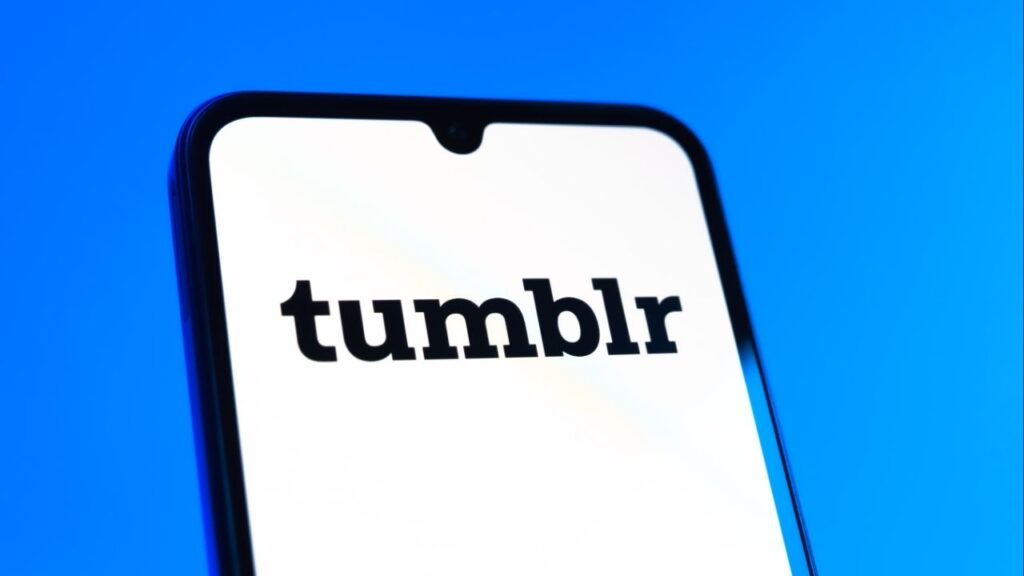
Tumblr Goes Down for Thousands, Downdetector Reports



